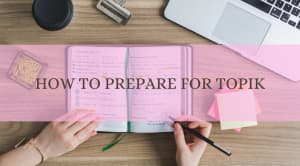
How to Prepare for the TOPIK Test: 20 Essential Tips
Enroll Now
Published: 2025-02-15 09:28:24
The Test of Proficiency in Korean (TOPIK) is an essential exam for non-native Korean speakers who want to study, work, or live in South Korea. Conducted by the National Institute for International Education under South Korea’s Ministry of Education, the test evaluates Korean language skills through various levels. If you're aiming to pass with high scores, follow these 20 preparation tips!
Understanding the TOPIK Test Structure
TOPIK consists of two parts:
- TOPIK I (Beginner): Comprises Listening (40 minutes, 100 points) and Reading (60 minutes, 100 points), totaling 200 points.
- TOPIK II (Intermediate-Advanced): Includes Listening (60 minutes, 100 points), Writing (50 minutes, 100 points), and Reading (70 minutes, 100 points), totaling 300 points.
Levels and passing scores:
- TOPIK I: Level 1 (80-139 points), Level 2 (140-200 points)
- TOPIK II: Level 3 (120-149 points), Level 4 (150-189 points), Level 5 (190-229 points), Level 6 (230-300 points)
20 Tips to Prepare for the TOPIK Test
1. Set Clear Goals
Determine whether you need the TOPIK for study, work, or self-improvement. Set a target level based on your objectives.
2. Create a Study Schedule
Allocate daily time for each section (Listening, Reading, Writing). At least 2 hours daily is recommended for effective learning.
3. Familiarize Yourself With the Question Format
Take previous TOPIK exams to understand the question patterns and difficulty levels.
4. Study with Official TOPIK Materials
Use official TOPIK past papers, sample questions, and study guides for structured preparation.
5. Improve Your Korean Vocabulary
Build a strong vocabulary using flashcards, apps, and daily word lists that align with TOPIK levels.
6. Enhance Grammar Knowledge
Study Korean grammar books and practice forming grammatically correct sentences.
7. Read Korean Texts Daily
Read newspapers, magazines, blogs, and web articles to improve comprehension and reading speed.
8. Listen to Korean Content
Engage with news broadcasts, podcasts, dramas, and K-pop lyrics to enhance listening skills.
9. Watch Korean TV Shows & Dramas
Listening to native speakers will help in understanding intonation, slang, and conversational flow.
10. Write Essays and Short Responses
Practice essay writing with TOPIK-style prompts, focusing on clarity and coherence.
11. Join a Korean Language Class
Enroll in offline or online classes to get expert guidance and structured lessons.
12. Take Mock Tests
Simulate real exam conditions by taking full-length mock tests to build stamina and confidence.
13. Get Feedback on Your Writing
Ask a tutor or Korean language partner to review and correct your essays.
14. Learn Common Phrases & Expressions
Memorize idioms, expressions, and common conversation patterns used in daily life.
15. Use Korean in Daily Life
Practice thinking, speaking, and writing in Korean throughout the day.
16. Improve Your Pronunciation
Use speech shadowing techniques to mimic native speakers and improve pronunciation.
17. Manage Your Time Wisely
During the test, allocate time efficiently between reading, writing, and listening sections.
18. Focus on Weak Areas
Identify weaknesses in grammar, vocabulary, or listening skills, and improve them.
19. Stay Consistent and Motivated
Consistency is key! Stay motivated by setting achievable goals and tracking progress.
20. Get Professional Guidance
If self-study isn't enough, consider expert coaching from certified language instructors.
Setting Goals for the TOPIK Test
Preparing for the Test of Proficiency in Korean (TOPIK) requires clear goals and a structured approach. Whether you're aiming for TOPIK I (Beginner) or TOPIK II (Intermediate-Advanced), having a well-defined study plan is crucial. Here’s how you can set effective goals and choose the best study method for your TOPIK preparation.
Deciding on the Level You Want to Achieve
Before starting your preparation, ask yourself:
✅ Why am I taking the TOPIK test? (For study, work, or personal goals?)
✅ What level do I need to pass? (Universities and jobs may require a specific level.)
✅ How much time do I have before the exam?
TOPIK is divided into two main categories:
1️⃣ TOPIK I (Levels 1-2) → Ideal for beginners who need basic Korean proficiency.
- Level 1: 80 - 139 points (Basic sentences, self-introduction, daily conversations)
- Level 2: 140 - 200 points (Handling daily life situations, simple texts)
2️⃣ TOPIK II (Levels 3-6) → Required for academic and professional settings.
- Level 3: 120 - 149 points (Basic communication for work, social settings)
- Level 4: 150 - 189 points (Fluent conversation, essay writing, public services)
- Level 5: 190 - 229 points (Professional & academic fluency)
- Level 6: 230 - 300 points (Near-native fluency in all contexts)
Pro Tip: Check the language requirements of your desired university, job, or visa application to determine the minimum score you need to achieve.
Creating a Realistic Study Timeline
A well-structured study plan is key to TOPIK success. Follow these steps:
? 1. Set a Study Period
- 3-6 months for beginners aiming for TOPIK I
- 6-12 months for intermediate/advanced learners aiming for TOPIK II
? 2. Weekly Study Schedule Example
- Monday: Grammar Writing Practice
- Tuesday: Listening Practice Vocabulary
- Wednesday: Reading Comprehension Practice Questions
- Thursday: Speaking Practice (Optional) Review Notes
- Friday: Mock Test & Time Management Practice
- Weekend: Intensive Review Korean Content (Movies, Podcasts)
? 3. Prioritize Weak Areas
Identify which section (Listening, Reading, Writing) needs more attention and allocate extra study hours accordingly.
? 4. Take Mock Tests Regularly
Simulate real exam conditions once every 2-3 weeks to track progress and adjust your study plan.
Self-Study vs. Joining a Korean Language Course
Self-Study Approach
If you prefer learning at your own pace, self-study can be a great option.
Pros:
✅ Flexible schedule
✅ Free/affordable learning materials available online
✅ Personalized learning pace
Cons:
❌ Lack of structured guidance
❌ No direct feedback from teachers
❌ Requires strong self-discipline
✅ Best Resources for Self-Study:
- TOPIK Official Website – Past exam papers & guidelines
- Korean grammar books – "Korean Grammar in Use," "TOPIK Guide"
- Mobile apps – TOPIK One, Memrise, Anki Flashcards
- YouTube channels – TalkToMeInKorean, Learn Korean with GO! Billy Korean
Joining a Korean Language Course
Enrolling in a structured course is beneficial for students who need expert guidance.
Pros:
✅ Professional teachers with exam expertise
✅ Structured lessons tailored for TOPIK
✅ Interaction with other learners
Cons:
❌ Fixed class schedules
❌ Course fees may be expensive
? Recommended Korean Language Courses:
If you want professional guidance, consider enrolling at Study International Language. They offer:
- TOPIK preparation courses
- Online and offline learning options
- Personalized coaching for all proficiency levels
Final Thoughts
Whether you self-study or join a structured course, the key to success in TOPIK is consistent practice and strategic preparation. Set realistic goals, follow a structured study plan, and use the right resources. If you need expert guidance, check out Study International Language for TOPIK-focused training to help you achieve your desired level.
Contact Us for Personalized Guidance
For more information and assistance in preparing for TOPIK, reach out to us: ? 9218071730
? sillanguagecourse@gmail.com
? Study International Language
Start your journey to mastering Korean and achieving your desired TOPIK level today!
